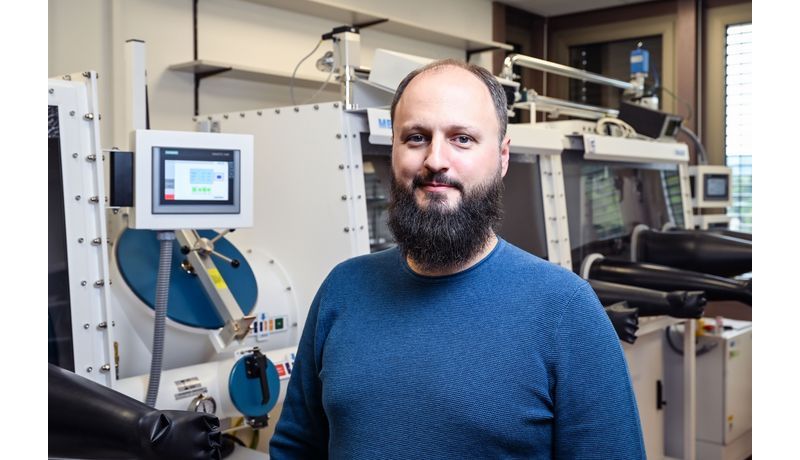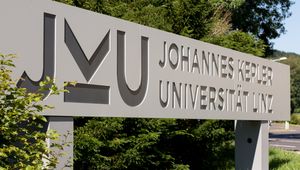An international project combining new materials has resulted in designing stable and efficient artificial robot muscles.

An international partnership between the Johannes Kepler University Linz, the Scuola Superiore Sant'Anna di Pisa, and the University of Trento combines technological progress with ecological sustainability.
A joint project has yielded a groundbreaking method to develop new types of soft actuators and artificial robot muscles that feature an enhanced level of performance, while also significantly reducing energy consumption. Univ. Prof. Martin Kaltenbrunner (Department of Soft Matter Physics at the JKU) and Marco Fontana, professor at the Institute of Mechanical Intelligence at the Scuola Superiore Sant'Anna di Pisa, conducted the research that resulted in helping to develop a new method to create more stable, efficient artificial muscles. Their innovative findings have now published in the renowned journal “Nature Electronics”.
Existing electrical actuators are too bulky
Actuators capable of transforming electrical energy into motion or energy play a key, but often unnoticed, role in our everyday lives. We have mainly used metal electric motors to date, which work well, but tend to also be bulky and heavy. A new generation of soft-material actuators, such as polymer films, have unique properties that include weighing less, performing better per weight, and being noiseless as well as biodegradable.
Univ. Prof. Martin Kaltenbrunner explains: "To this end, we are using multi-material structures that are essentially 'pockets' made out of flexible plastic film that are then filled with oils and coated with electrodes. When voltage is applied, these films squeeze the fluid out and the pocket contracts, similar to the way muscles move."
The system can help to build artificial muscles for robots, adjustable lenses, and tactile surfaces. Applying constant voltage, however, has thus far resulted in creating short-term muscle contractions, which significantly limits the range of practical applications. Together with JKU researchers, Ion-Dan Sîrbu (Scuola Superiore Sant'Anna di Pisa), was able to solve these issues during his research stay at the JKU.
Using JKU technology as a starting point
Sîrbu remarked: "We conducted experiments based on a plastic film used by JKU physicist David Preninger as part of his work on artificial biodegradable muscles. We discovered a material capable of maintaining a constant force over indefinite periods of time and we realized that we had made a major discovery."
The team has since worked on a theoretical model and performed in-depth material characterizations. David Preninger, the study’s first co-author and a PhD candidate at the JKU's Department of Soft Matter Physics, added: "The beauty of our model lies in its simplicity and in the fact that is not restricted to current actuators. We believe that our findings will give the scientific community a simple but powerful tool to design and study new systems."
Tremendous energy-saving potential
Martin Kaltenbrunner, department head, has confirmed just how significant the discovery is: "The interesting thing is not only is this technology much easier to use, our findings can also be used to identify combinations of materials that can reduce energy consumption a thousand-fold."
Researchers have successfully manufactured and operated various types of artificial muscles, adjustable lenses and tactile displays using the identified material combinations. Prof. Fontana points out: "Understanding the underlying mechanisms of soft actuators, as identified in this study, has the potential to significantly drive advancements forward, especially in the field of assistive devices, automatic machines, and mobile terrestrial, ocean, and space exploration robots."
As such, the project contributes significantly to the search for cost-effective, high-performance solutions in robotics, designed to sustainably minimize both energy consumption and environmental impact.
Inquiries:
DI David Preninger
Department of Soft Matter Physics
Ph.: 0732 2468 9771
E-mail: david.preninger(at)jku.at
 Go to JKU Homepage
Go to JKU Homepage














